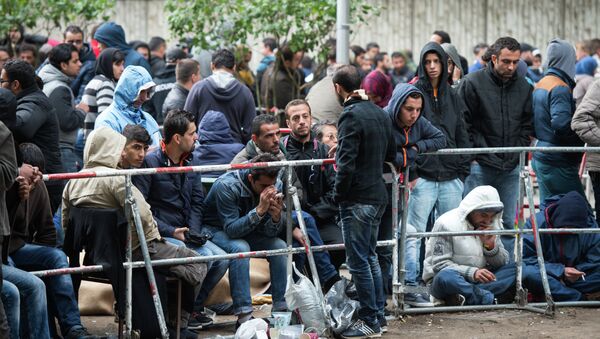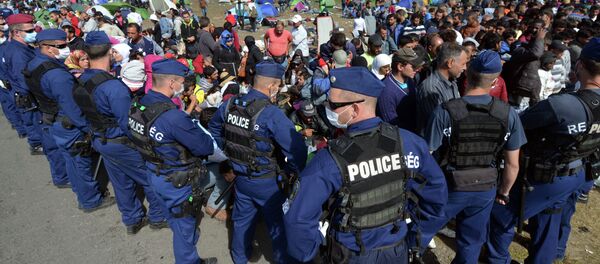“Europe’s Schengen system is on its deathbed,” Lehming states in his article for The National Interest magazine. Germany can’t find any support in Europe for its stance on the refugee crisis.
“Now everyone in Europe is talking about “the Cologne atmosphere,” which they would prefer to avoid,” he adds.
The country itself remains divided over the issue.
“The police, for example, are sounding alarms because they are understaffed and overwhelmed,” the author says.
“Towns are sounding alarms because they’ve run out of room for more refugees. And it’s unclear how long sports facilities will be used as temporary hostels, because no one knows how many more refugees will arrive.”
Meanwhile, the authorities are unable to suggest any further plan of actions, even though “a return to the cozy pre-refugee era is out of the question”.
“The refugees are here. They have to be integrated. But the way forward is shrouded in fog.”
The author however acknowledges that asylum homes are attacked daily. And the authorities are shutting down online forums because of the “viciousness of comments about asylum seekers”.
“One side has fear of over-foreignization, of Islam, of radicalization, of limitless immigration, “ the author says.
Still, Lehming cites the results of a poll by the Allensbach Institute, nearly half of all Germans are afraid to voice their opinion about the refugee crisis.
The skeptics of today’s refugee policy—the term “concerned citizens”, he says, is now being used as a term of aspersion by the pro-refugee faction—are not represented by any party in parliament, but are announcing themselves with increasing vigor in the media and in opinion polls.
“Is suppression at play here? That would revive a nasty theme in German history. After the Second World War, the crimes of the Third Reich were suppressed. During the Cold War, many did not want to acknowledge the crimes of the Communists. Are Germans now suppressing what awaits their country thanks to the high number of immigrants?” the author finally questions.






